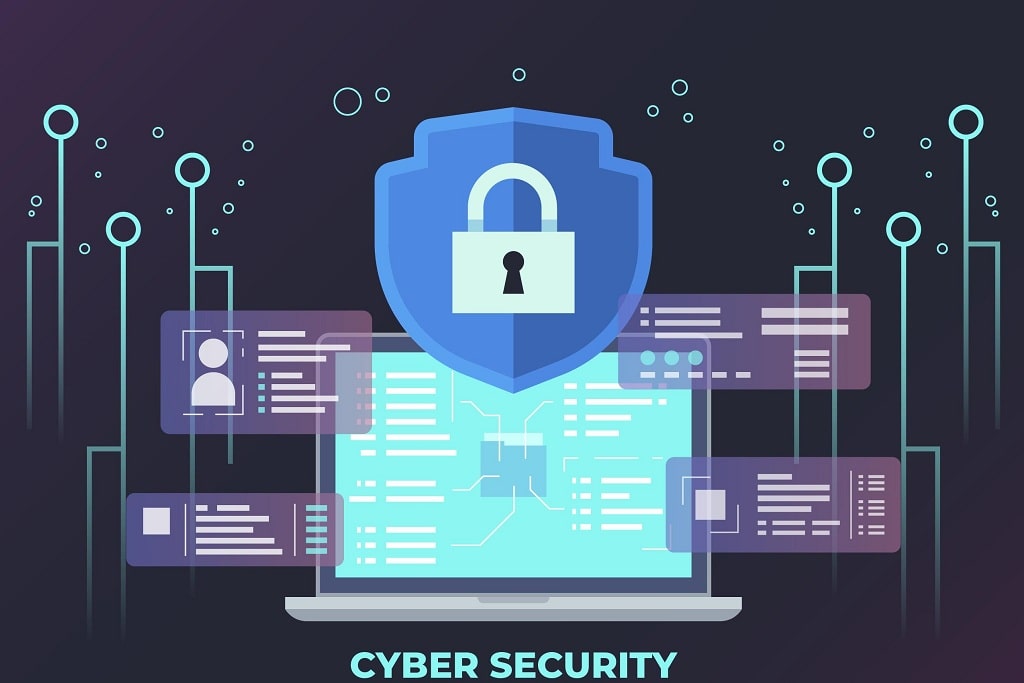
COVID-19 witnessed an unprecedented amount of businesses go to the Internet for the first time. But, the epidemic also put pressure on budgets, revealed severe gaps in technical expertise, and highlighted that many companies are not prepared to meet the demands of modern cybersecurity.
Before the pandemic, the privacy of data and insurance against cyberattacks were more prevalent in high-risk sectors such as finance, healthcare, and the field of information technology (IT). However, the rise of online businesses implies this is no longer the case.
Different sectors adapted quickly—a lot of companies adopt remote work as well as e-commerce. Many also began operations and then moved their work online. However, security was not the priority for small companies trying to survive during that time.
Small businesses are more prone to be the target of cyberattacks.
 In the last two years, threats to small and mid-sized businesses have increased by up to 150 percent while becoming more sophisticated. Many companies have been unable to keep up with the pace, and that lack of awareness has left them vulnerable.
In the last two years, threats to small and mid-sized businesses have increased by up to 150 percent while becoming more sophisticated. Many companies have been unable to keep up with the pace, and that lack of awareness has left them vulnerable.
For smaller firms, the issue is an absence of resources and knowledge. Small and medium-sized companies typically do not have dedicated cybersecurity experts to protect their systems. In reality, less than 10 percent of companies with less than fifty workers have dedicated resources to cybersecurity.
Therefore, creating an effective online presence isn’t easy, as it usually requires expensive tools and skilled professionals.
Read: 5 Reasons: Retail Stores more vulnerable than ever to Cybercrime
The increasing use of remote work has also provided many devices owned by individuals (mobiles, tablets, laptops, and smartphones) access to confidential data. Unfortunately, most employers don’t require regular scanning of their smartphones or laptops for malware or other security vulnerabilities, or do they even bother to do so?
Additionally, only a few small companies can afford access to secure encryption software, such as password managers or VPNs, and WiFi networks at home are usually susceptible to attacks.
In simple terms, the remote working environment is not providing the protection businesses require to run their operations securely.
Cybercriminals often look for weaknesses in security for data with ransomware, which can threaten to release private information or even deny access to critical computer files until a ransom is paid.
Recent high-profile examples include malware such as TeslaCrypt or Cryptowall, which can encrypt sensitive data and ask for cryptocurrency payment in exchange. This is all evidence of the fact that cyberattacks are becoming increasingly sophisticated.
Social engineering, machine-learning malware, and other sophisticated attacks have become more frequent, reaching 35% of all security breaches in the epidemic.
Read: 10 Best Online Cybersecurity Training Courses of 2022
Because these attacks require a bespoke reaction from security professionals, small and mid-sized businesses were quickly targeted during the pandemic.
The security of cyberspace in a post-COVID environment
Although the epidemic has ended, smaller and mid-sized enterprises are more susceptible to data breaches than in 2019, as the same habits of remote-working that existed before the lockdown are still in use today.
The growing use of unsecured cloud-based solutions and networks opens the possibility of malicious attacks. If the current pace of attack continues, it is expected that small businesses will be targeted between 56,000-86,000 times by 2022.
As the virus spread, businesses of all sizes focused on their employees’ survival. It is, therefore, expected that, for small and medium-sized enterprises, computer literacy among employees and online safety education was not a top priority.
Cybersecurity ranks among the most neglected importance for small-sized businesses, even as we move out of the epidemic.
Read: How to Apply Cybersecurity to Enterprise Security
Designing the cybersecurity and data privacy strategy from beginning to
The loss of customers is an issue; however, a cyberattack’s potential damage could cause small-scale businesses’ bankruptcy. The risk of large payouts, lawsuits, or criminal probes is a typical outcome.
Therefore, the best way to prevent this is to strengthen cybersecurity before an attack.
- Learn what sensitive data the company holds, the location it is stored, and the methods of accessing it.
- Keep abreast of the latest cybersecurity developments in cybersecurity. Examine every possibility and implement security measures to protect against the most frequent attacks: ransomware, malware, social engineering, and distributed denial of service (DDoS). Security professionals in small businesses must be able to identify different kinds of attacks, know the consequences of each, and what they should do to them when the threat of cyberattack or data loss occurs.
- Conduct a pre-purchase assessment. Every cyber tool has to be evaluated and vetted. For instance, what is the provider’s attitude towards security? Is the product or company accredited (ISO, SOC2), and is the company affected by third-party suppliers?
- Outsource experts. A full-time employee in the house is ideal for a risk reduction job, but it’s not the best option for many small firms. Small-scale business owners can hire consultants to analyze their organization’s cyber security and develop the necessary incident-response plan.
- Utilize the available security tools. Begin by upgrading all your gadgets and applications to the most recent version. Install 2FA whenever possible. Ensure you have an administrator of passwords and a person who can access sensitive information.
Read: 6 Significant Cyber Security Tips for College Students
Whatever the size of the organization, cybersecurity as well as privacy of data are two of the most significant issues being faced by all businesses in the present. However, the difference is that big firms and companies will nearly always have the resources to withstand the storm.
It’s no surprise that smaller and mid-sized companies were the most severely affected by the epidemic, and those that made it through are now facing a fresh danger to their existence in cybersecurity.
As mid-sized and small businesses increase, they are an increasingly attractive potential target for cybercriminals. This is the perfect moment to put money into cybersecurity to safeguard small-scale companies and user information.
Follow Us on Twitter for more information and updates about CyberSecurity.






